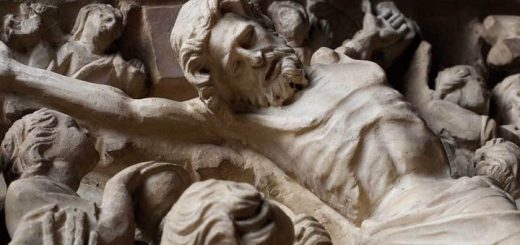"For the love of Sion I will not keep silent." The cry of Isaiah seen by the people's people
Reflections taken from the website of group Kairos, Christians LGBT+ and their parents of Florence
"For the love of Zion I will not silence, for the love of Jerusalem I will not give myself peace, until his justice shine like Aurora and his salvation as a burning lamp»(Isaiah 62,1)
These words of Isaiah tell of a God who does not stop fighting until his beloved community receives full dignity. It is a powerful image that speaks of redemption, a new name and a land that finally finds its identity.
If reread in a queer key, this prophecy resonates as a liberation ad for LGBT+people, and in particular for transgender people, often forced to justify their existence or to fight for the recognition of their identity.
A new name, a new dignity
In the text, Jerusalem is called with a "new name" given by God (Isaiah 62,2). This image is extraordinary if we think of transgender people, who often live a path of affirmation of their identity, choosing a name that reflects who they really are.
The transition process, both social and medical, is a path of authenticity and rebirth, and in this promise of God we can see the recognition of the sacredness of each person in his being deeper.
Isaiah also describes Jerusalem as a "crown of glory" in the hands of God (Isaiah 62,3). This image recalls the preciousness of every life and invites us to see LGBT+ and transgender people not as individuals to be tolerated or corrected, but as human beings full of beauty and value³.
From exclusion to blessing
Isaiah proclaims that the people of God will no longer be called "desolate land" nor "abandoned" (Isaia 62,4), but will receive a name that expresses love and welcome. Transgender people, who often suffer family or religious refusal, can see in these words a radical hope: God does not abandon, does not refuse, but on the contrary he is pleased with the truth of each individual.
In many Christian traditions, unfortunately, trans people are excluded or forced to hide who they are. Yet, if we follow the logic of Isaiah, God not only welcomes, but celebrates those who find the courage to authentically live their identity⁴ (Bourg, 2007).
The text also suggests a wedding vision between God and the people: "As the bridegroom for the bride rejoices, so your God will rejoice for you" (Isaiah 62.5). This is an unconditional message of love that exceeds the boundaries imposed by social norms: God does not impose rigid patterns on who we can be or who we can love, but rejoices on our authenticity⁵.
A voice that is not silent
“For the love of Sion I will not silence"(Isaiah 62,1), this prophetic cry can be interpreted as an appeal to justice also for LGBT+ and Transgender people. Too often religious institutions imposed silence to those who asked for dignity and respect. But Isaiah reminds us that God does not silent in the face of oppression and that justice must shine like the aurora⁶.
The history of the Bible is crossed by transformation stories: from Abraham, who receives a new name, to Sara, who conceives against all expectations, until Paolo's conversion. In this same dynamism, we can read the path of transgender people as a testimony of new life, in which their identity is finally recognized and celebrated.
Isaiah 62 invites us to see reality with different eyes: to recognize that dignity is not granted from above, but it is already an integral part of each person. God does not call anyone to live in shame or fear, but invites every human being to shine with the light of truth. And this light cannot be off.
_____
1. Dunnavant, Kaleb (2020).Queering The Prophetic: Rethinking Gender in Biblical Interpretation(Queerize prophecy: rethink the genre in biblical interpretation). Fortress Press.
2. Stuart, Elizabeth (2003).Gay and Lesbian Theologies: Repe to With Critical Difference(Gay and lesbian theologies: repetitions with critical differences). Ashgate.
3. Althaus-Reid, Marcella (2001).Indecent Theology: Theological Perversions in sex, Gender and Politics(Indecent theology: theological perversions on sex, gender and politics). Routlegge.
4. Bourg, Florence (2007).Where Two or Three Are Gathered: Christian Families As Domestic Churches(Where two or three are gathered: Christian families as domestic churches). University of Notre Dame Press.
5. Tamez, Elsa (2018).Through Her Eyes: Women's Theology From Latin America(Through his eyes: women's theology in Latin America). Wipf and Stock.







